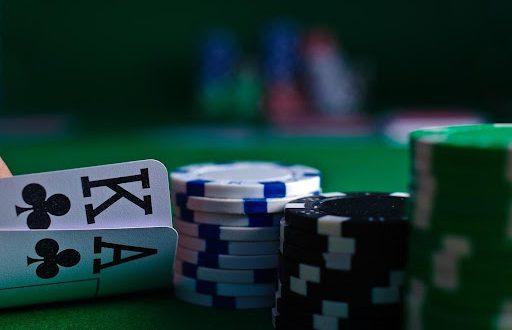Poker is an ever-evolving game that baffles even the strongest players. If you’re a beginner, you must understand that it takes years to create a solid poker strategy that can boost your odds of winning.
Therefore, if you’re planning to venture into the fantastic world of poker, you should learn the basics — having a solid poker face can only take you so far. Although you must learn the game rules yourself, the following article will give you valuable tips and tricks to help you gain more confidence and start building your own unique strategy.

(https://unsplash.com/photos/U8n_O7rEq7o)
When you’re done reading this post, you’ll understand concepts like folding and bluffing, but you’ll also know when to take a breather and when to attack. So, let’s get started.
Learn Hand Ranking, Positions, and Rules
Before you start playing any game, the logical thing to do is learn the rules. While wrapping your head around the rules and positions is quite simple, learning everything about hand rankings is more complicated. Unfortunately, you can’t become a poker player if you skip this step.
Don’t worry, though — you can always return to these charts and examine them. No one expects you to know them by heart from the beginning. However, if you want to read more about what beats a full house in poker, you must first understand the rankings.
Start at Low Stakes
Starting low and slow is the best piece of advice you will get. Many inexperienced players jump the gun and go all out, but it rarely ends well. You want to use low stakes to your advantage as they give you a chance to test different strategies and improve your skills without breaking the bank.
So, start small and build your way up. Once you feel more confident and comfortable with your cards, you could begin increasing the stakes. Never push yourself, though — if you don’t feel ready, keep playing on the same level.
Avoid Bluffing Too Much
Many beginners make the same mistake — bluffing excessively. If you’re just starting, you should let your cards dictate the game and follow the basic strategy — play when you have a good hand and fold when you don’t.
Of course, once you reach higher levels, this strategy won’t be enough. Many experienced players tend to play more aggressively and bluff more often, so you should know how to match them. However, avoid constantly bluffing, as it can affect your gameplay in the long run and lead to more losses.
Fold When Uncertain
Mastering the art of folding takes a lot of time. Beginners are usually eager to win, and they often overlook moments that can help them improve their skills. It’s important to understand that folding isn’t giving up. If you watch WSOP events, you’ll notice that even the best players know when it’s time to stop.
Therefore, if you’re unsure whether to call or fold, go for the latter. Calling when it’s not the right moment is one of the best ways to lose money.
Be Fast With Strong Hands
If you have a strong hand, play it. Don’t waste time thinking about the right move — just trust the cards and play them. It will allow you to collect more chips and keep you in the game. However, this doesn’t mean you should always play your hand — do it only if you believe your chances of being outdrawn are small.
Be Patient
Poker is all about skill and strategy. Players who make random decisions during the game can never master it. Therefore, it’s essential to have patience and give yourself enough time to learn the ins and outs of poker.
Even if you get overwhelmed — don’t give up. Take a break, remember everything you’ve learned, and then decide what your next move should be.
 Tech Gadget Central Latest Tech News and Reviews
Tech Gadget Central Latest Tech News and Reviews




